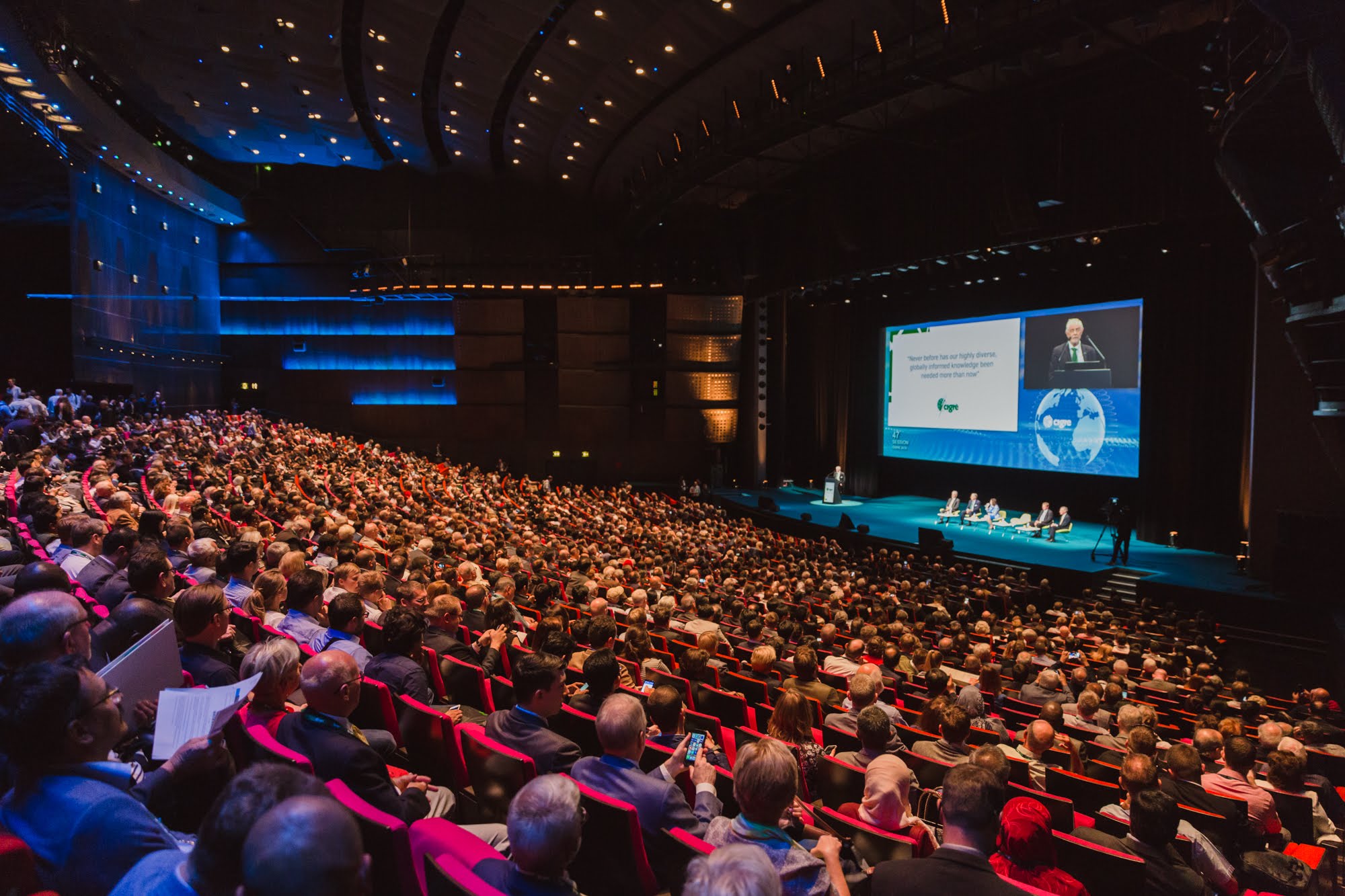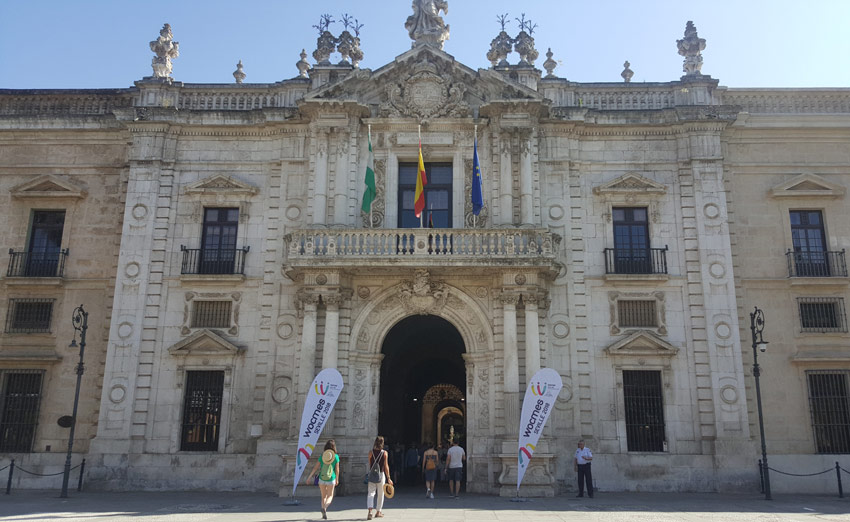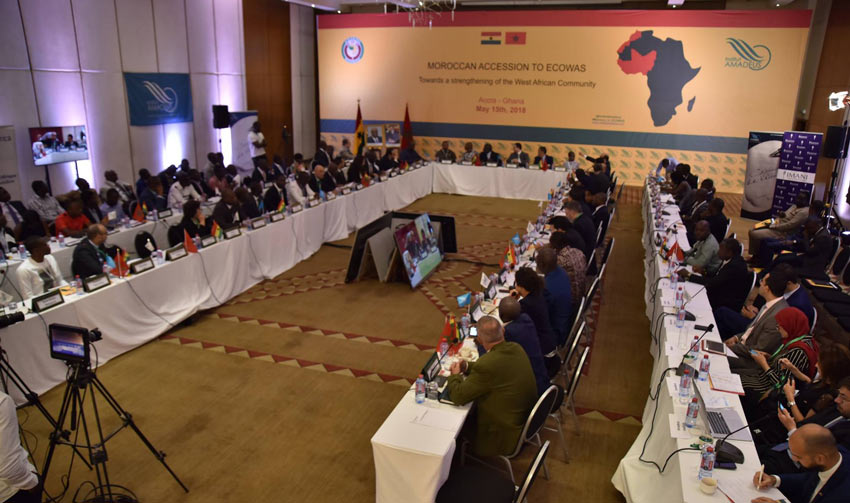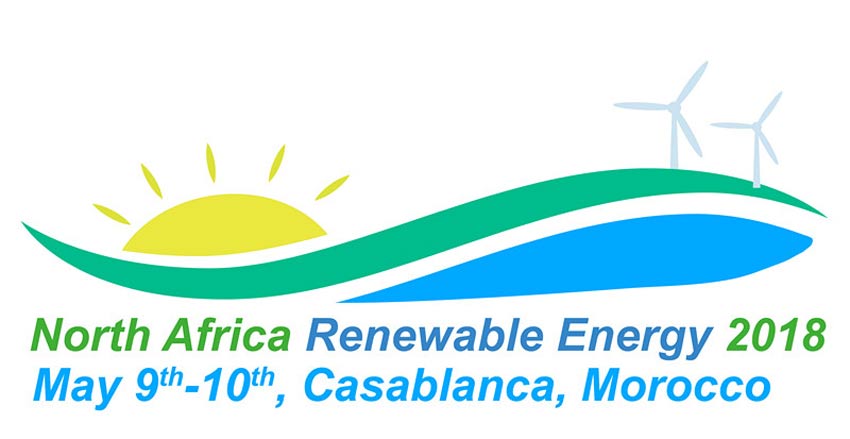Aktuelles
Green Finance, Digital Economy and Climate Risks
 KAS–REMENA Experts’ Meetings from December 15-17 and 19-21 2018 in Rabat, Morocco
KAS–REMENA Experts’ Meetings from December 15-17 and 19-21 2018 in Rabat, Morocco
KAS–REMENA Experts' Meetings on “Sustainable Finance and Green Economy: Tackling Climate Change and Resource Shortage in the MENA Region” took place from December 15-17, in Rabat. Fostering dialogue among various regional actors is critical for sustainable private investments, in order to connect green finance with the MENA region’s societal aspirations. Additionally, a meeting on “Opportunities and Risks of Digitalization for Climate Change Mitigation/Adaptation and Resource Security in the MENA Region“ from 19-21 December looked into smarter, integrated resource supply systems. Sahara Wind was invited to launch both meetings' debates at Sofitel Palais des roses.
Digital Strategies & New World Energy Order
Sahara Wind at MEDays, November 07-10 2018
Under the theme "In the age of disruption: finding the new paradigms" the 11th edition of the MEDays forum gathered 150 high-level speakers and participants from over 50 countries. Held in Tangier, Morocco, the panels " Oil, Gas, Shale and Renewable Energies: Toward a New Energy Order" and "In the Age of Disruption and Digital Acceleration: is it the end of strategies?" have been moderated by Khalid Benhamou, CEO of Sahara Wind.
Sahara Wind at P4G Summit 2018
 Sahara Wind at #P4GSummit to showcase a scalable, inclusive resource-efficient economy
Sahara Wind at #P4GSummit to showcase a scalable, inclusive resource-efficient economy
The P4G Copenhagen Summit 2018 gathered Heads of States and Government, leaders of international organizations, businesses, academia, and the civil society from around the world to form a powerful coalition on the sustainable development goals through innovative partnerships. Inspired by the paleontological footprints and human legacy of the Atlantic trade winds, the Sahara Wind project provides a scalable solution that can decarbonize food and agriculture, energy, industry, mobility and supply desalinated water on a massive scale. Recently published climate models also suggest that the Sahara Wind project’s multi-Giga-Watt size could lead to a twofold precipitation increase in the Sahel, through increased surface friction and reduced albedo.
Water-Energy-Food Nexus in the Mashreq
 The “Sahara Wind-HVDC project’s transition to clean energy, water and global food security” presented at the "Water-Energy-Food Nexus Implementation in the Mashreq" Workshop in Beirut, Lebanon
The “Sahara Wind-HVDC project’s transition to clean energy, water and global food security” presented at the "Water-Energy-Food Nexus Implementation in the Mashreq" Workshop in Beirut, Lebanon
Organized on September 24-26th 2018 by the Middle East Desalination Research Center (MEDRC) and the Konrad- Adenauer-Stiftung Regional Program Energy Security and Climate Change Middle East and North Africa (REMENA) under the auspice of the Ministry of Energy & Water of Lebanon, this workshop analyzed the links between water, energy and agricultural sectors. Given the constraints and strong interdependencies between these sectors, integrated approaches to develop effective strategies in the sustainable use of these resources were presented and discussed. On the basis of consistent water policy and governance, the Water-Energy-Food Nexus can leverage significant investments in the Mashreq region.
Sahara Wind's HVDC link at CIGRE2018
 Sahara Wind-HVDC project presented at CIGRE2018 in Paris, France
Sahara Wind-HVDC project presented at CIGRE2018 in Paris, France
Unveiled at the 47th session of the International Council on Large Electric Systems CIGRE, the global electricity network aims to interconnect power grids between regions and continents to optimize renewable resources. Within such context, the Sahara Wind-HVDC project’s integrated access to the North Atlantic trade winds was presented at the ‘Technologies for Global Energy Grid’ TGEG’18 workshop. Organized by the AGP'21 association, the workshop brought together leading experts to discuss current and prospective technologies for the gradual deployment of a future World Energy Grid.
Sahara Wind's Water & Resources at WOCMES2018
 'Sahara Wind’s energy, water and global food security nexus’ at the World Congress for Middle Eastern Studies in Seville, Spain
'Sahara Wind’s energy, water and global food security nexus’ at the World Congress for Middle Eastern Studies in Seville, Spain
To secure access to water, the founder of the Sahara Wind project installed Morocco’s first wind turbine on the Sahara Atlantic coastline in 1995. Local field trials, reporting and regional consultations inspired wind policies over decades to secure an optimal water access powered by wind technologies. Boosting sustainable agriculture and local development while powering Africa & Europe at record-low electricity prices, the Sahara Wind project’s 5GW-HVDC transmission line paves the way to carbon-free fertilizer production. In processing 71% of the world’s phosphate reserves, a major source of industrial emissions can be alleviated. Critical in today’s energy transition, hydrogen can be produced through renewables. These prospects have been presented on July 19th at the Water and Resources Panel of #WOCMES2018.
EU vision for a modern, clean and competitive economy #EU2050
 Sahara Wind at the “EU vision for a modern, clean and competitive economy” high level conference in Brussels, July 10-11 2018
Sahara Wind at the “EU vision for a modern, clean and competitive economy” high level conference in Brussels, July 10-11 2018
In March 2018, EU leaders asked the European Commission to present, within 12 months, “a proposal for a Strategy for long-term EU greenhouse gas emissions reduction in accordance with the Paris Agreement”. In preparation for a mid-century low carbon emissions strategy, the Commission organized a stakeholder consultation event for a discussion on the EU long-term strategy for reducing greenhouse gas emissions. Hosted by Miguel Arias Cañete, Commissioner for Climate Action and Energy at the Université Libre de Bruxelles (ULB), this by invitation-only 2-day stakeholder meeting sought inputs from citizens and stakeholders from business, research and civil society over the EU’s long-term emission reduction strategy.
Strengthening the West African Community
 Sahara Wind moderates the Moroccan accession to ECOWAS conference of May 15th 2018 in Accra, Ghana.
Sahara Wind moderates the Moroccan accession to ECOWAS conference of May 15th 2018 in Accra, Ghana.
Morocco’s accession to the Economic Community of West African States (ECOWAS) as a full member has been agreed in principle by the community’s Heads of State in June 2017; however, the absence of a debate has been noticed in Morocco as well as in the ECOWAS states. In order to reinforce trust between governments and people, a conference under the theme: “Morocco’s accession to ECOWAS: Towards a strengthening of the West African community” was held at the Mövenpick Ambassador Hotel in Accra. Organized by the Amadeus Institute in partnership with the General Confederation of Entrepreneurs of Morocco (CGEM) and the Ghanaian Think Tank IMANI Africa, participants shared their respective sectors interests on how Morocco’s accession process can be implemented without disrupting the West African integrationist synergy. Held under “Chatham House Rule” Moroccan, Ghanaian and West African delegations debated and explored ways to reinforce this exemplary regional community with the best “win-win” approach.
Aggregating North Africa’s energy transition
"Aggregating North Africa’s inclusive, regional energy transition: the Sahara Wind project" presented at the North Africa Renewable Energy Summit 2018.
The North Africa Renewable Energy Summit 2018 brought together regional stakeholders to assess current frameworks in the transition to a more efficient, cost-effective low-carbon economy. North African delegates presented their respective Solar and Wind potentials along with their operational capacites. Current renewable energy targets with best practices were assessed in order to implement an effective roll-out strategy. The latter will be essential to meet the region’s growing energy demand.
Sahara Wind project at Algeria's ICEMAEP'2018
 Sahara Winds inclusive, proprietary project concept presented at the 4th International Conference on Energy, Materials, Applied Energetics and Pollution April 29-30, 2018 in Constantine, Algeria
Sahara Winds inclusive, proprietary project concept presented at the 4th International Conference on Energy, Materials, Applied Energetics and Pollution April 29-30, 2018 in Constantine, Algeria
The Sahara Wind project’s capacity building activities provides a business case affecting regional power, phosphate and iron-ore industries. As backbones of Morocco and Mauritania’s respective economies, tapping on the Atlantic trade winds to upgrade the region’s phosphates to fertilizer and iron-ore exports represents major environmental objectives. De-carbonizing the world’s most polluting (fertilizer and steel) industries while feeding regional electricity markets at record-low costs through Sahara Wind’s HVDC line ushers Africa in an era of sustainability. Presented at the University Mentouri of Constantine ICEMAEP'2018 on April 29th 2018, the Sahara Wind project’s inclusive regional approach is likely to leverage Algeria’s significant resources.
Berlin's Global Energiewende Dialogue #BETD2018
 Sahara Wind at Berlin's Energy Transition Dialogue 2018, April 17-18
Sahara Wind at Berlin's Energy Transition Dialogue 2018, April 17-18
To discuss viable concepts for the ongoing transformation of the energy sector Foreign and Energy Ministers met at the Berlin Energy Transition Dialogue. Held at the German foreign ministry in Berlin, the event gathered some 2,000 participants ranging from CEOs, Managing Directors, Presidents and Managers to Department Heads from more than 90 countries. #BETD2018 provided a platform for an international public to assess national governments and energy sector stakeholders efforts to meet ambitious goals of the Paris Agreement and the 2030 Agenda.
China-Africa: Investments & Economic Cooperation
 The China-Africa Summit's "Economic Cooperation and Investments" preparatory conference panel moderated by Sahara Wind
The China-Africa Summit's "Economic Cooperation and Investments" preparatory conference panel moderated by Sahara Wind
To strengthen the ongoing collective Sino-African dialogue ahead of the 6th China-Africa Summit to be held in Beijing on September 2018, an experts conference was organized at the Sofitel Rose Garden Hotel in Rabat. Over one hundred invited politicians, economic operators, diplomats, experts and academics from Africa and China gathered in closed hearings round tables format of the Forum on Africa-China Cooperation (FOCAC). In addition to 'Economic Cooperation and Investment' moderated by Sahara Wind, the conference focused on political mechanisms, human development and skills transfer mechanisms as well as peace and security.




